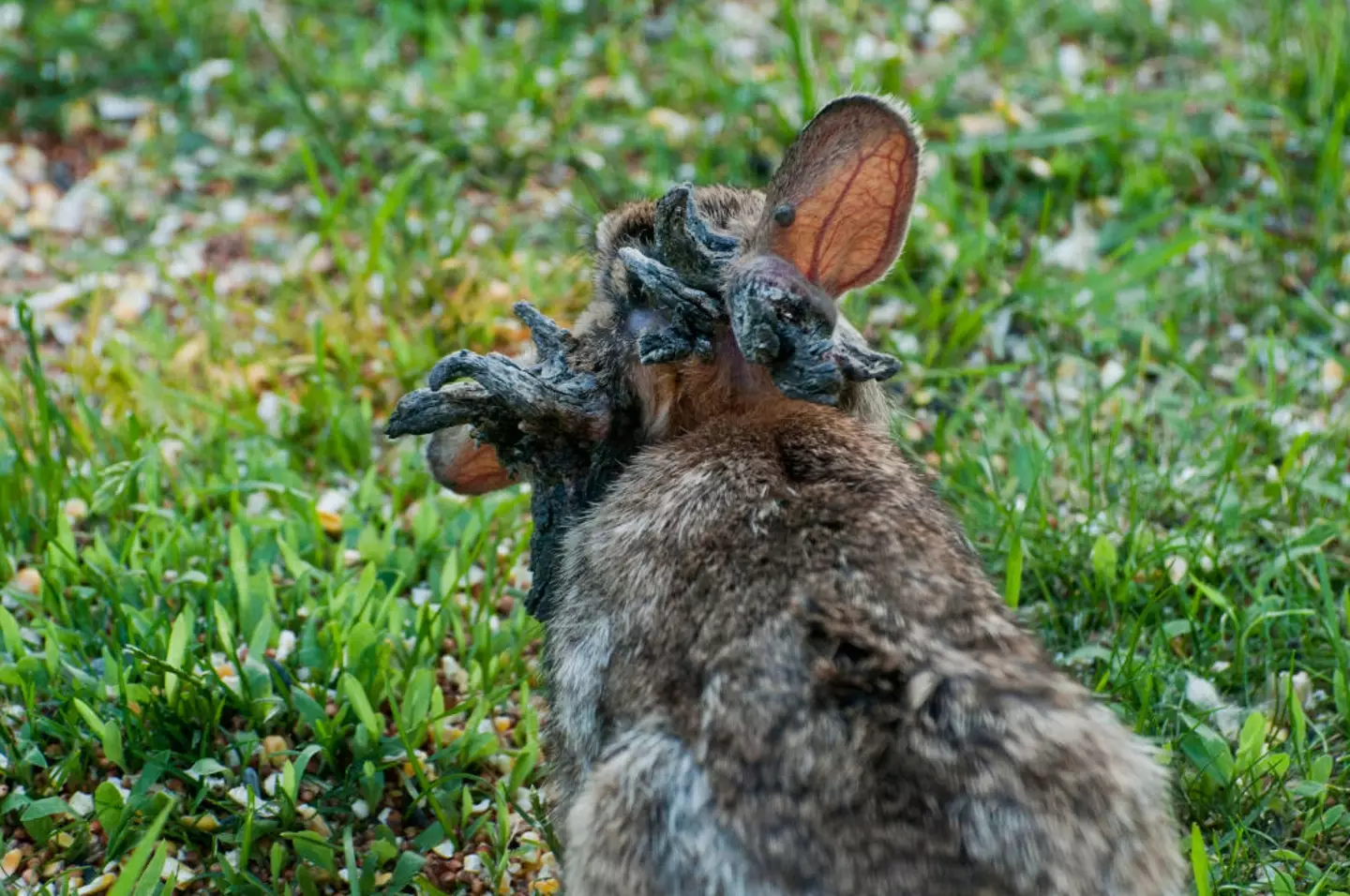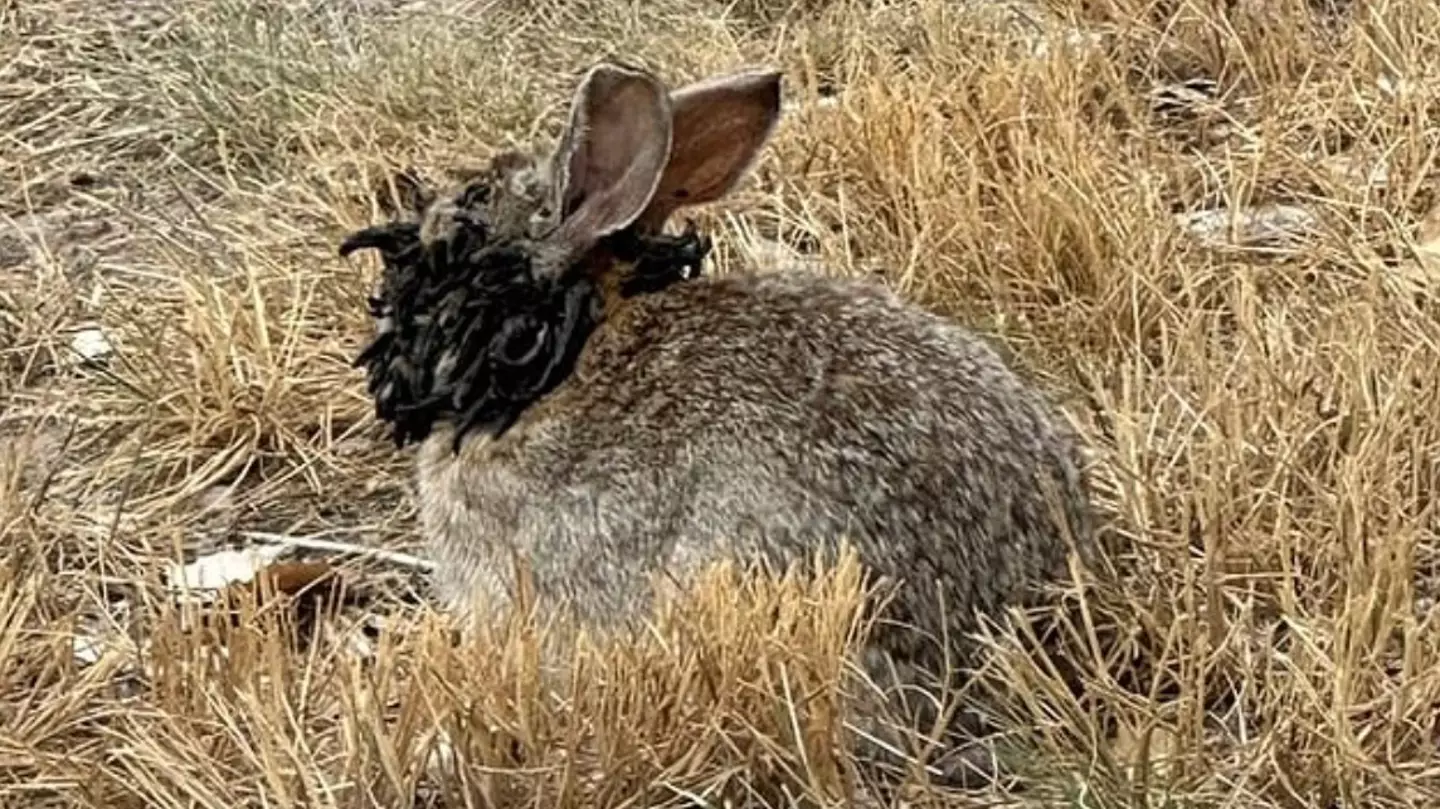As Fort Collins, Colorado, deals with an outbreak of mutated rabbits, Dr. Sean McCormack offers crucial advice for pet owners in the area.
If you haven’t heard the news yet, consider yourself fortunate. The cottontail papilloma virus (CRPV) is affecting the wild rabbit population in Fort Collins. This virus causes these rabbits to develop face-covering tumors, giving them an otherworldly appearance.
Experts believe this ‘Frankenstein’ mutation may spread across the Midwest, with the virus being transmitted by mosquitoes and ticks that first bite infected rabbits and then move on to healthy ones.
In an exclusive interview with UNILAD, veterinarian McCormack, who has over 14,000 Instagram followers, shared some important tips for locals who want to protect their pets.

When asked how rabbit owners can protect their pets from the virus, he explained: “This virus is spread via biting insects like midges and mosquitos as well as by ticks. So it can be difficult to prevent infection in pet rabbits with access to the outdoors.
“Even indoor rabbits could also get infected with flying insects coming into the home, so mosquito repellents or traps and door fly screens are a good idea in the home to prevent exposure to biting insects.”
Dr. McCormack also noted that ‘direct exposure to infected rabbits can lead to infection; thus, if you suspect one of your rabbits is affected, temporary isolation is recommended until a vet can confirm whether cottontail rabbit papillomavirus (CRPV) is suspected’.
“If you live in an endemic area where wild rabbits are affected then the risk is higher with outdoor pet rabbits, so contact with wild rabbits must be prevented, ideally by rabbit-proof fencing your entire property.
“Unfortunately there is no vaccine currently for the disease, and it is treated symptomatically when it occurs, usually by surgical removal of the tumours it can cause.
“Fly and tick prevention products that are safe for rabbits can be prescribed by your vet if you live in an endemic area, and are a good idea to use on outdoor rabbits during the summer when the risk is highest,” he added.

We also asked the vet about early signs of the cottontail papilloma virus.
“Usually we see red, raised, rough skin lesions about 1cm in diameter,” noted McCormack. “They can occur anywhere on the body, but are most often around the head and neck region, particularly around the eyes, ears, nose and mouth.”
These lesions eventually develop into dark, keratin-based growths as shown in images.
“It’s important to say that CRPV has not been found in the UK or Europe; it is a disease of North American wild rabbit species like Cottontails and Brush rabbits that can infect domestic rabbits too,” he mentioned.
McCormack’s top recommendation for pet owners who suspect their rabbit is infected is immediate isolation.
“Get to a vet as soon as possible for a check-up, preferably a rabbit savvy vet (as some are more experienced with small domestic pets than others),” he suggested.
“If CRPV is suspected, they will likely want to do a biopsy to determine this for certain. The earlier this disease is detected, the better the potential outcome, as with many pet health issues.”

